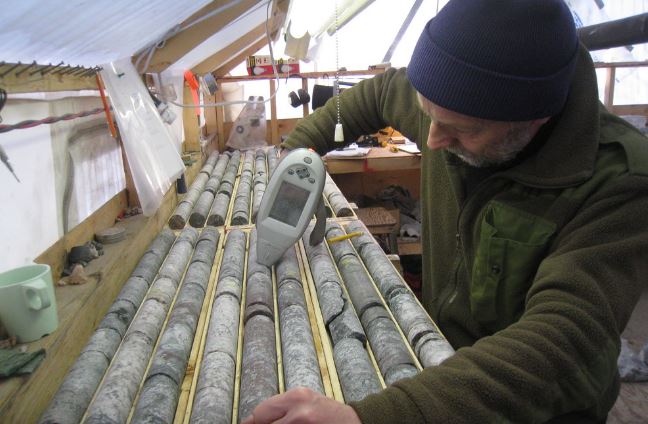Rare earth stocks trade heavily on supply fears

By Peter Kennedy
Avalon Advanced Materials Inc. [AVL-TSX; AVLNF-OTCQX] and other Canadian rare earth companies continue to trade heavily amid concerns that China could retaliate in a trade war with the United States by blocking exports of rare earths to the U.S.
Those concerns have been raised because the U.S. relies on China, the dominant global supplier, for about 80% of its rare earth imports. China also accounts for 70% of the world’s rare earths consumption.
“This control over the demand side and supply side of the market gives China quite a strong control over rare earth pricing, which has been used to control the global market itself by incentivizing or dis-incentivizing of rare earth projects outside China,” said David Merriman, a rare earth expert and Manager of Battery & Electric Vehicle Materials at Roskill Consultancy.
“If China were to cut off exports of rare earths directly to the U.S., there is likely to be some pricing reaction there as consumers scramble to find alternative sources of rare earths,” he said.
It is not clear yet that China will actually halt exports of rare earths to the U.S.
Talk of a possible blockade followed a recent visit by Chinese President Xi Jinping to a rare earth’s facility in Jiangxi, China. Bloomberg News described the visit as a scripted move that aims to send a signal about what China might be prepared to do next in a trade war with the U.S.
That in turn has triggered renewed interest in rare earth companies such as Avalon, which emerged once again on Friday as the most active stock on the TSX with trading volume of 7.4 million. Its shares were off 7.4% or $0.01 to 12.5 cents.
Other active stocks in the rare earth space included Ucore Rare Metals Inc. [UCU-TSXV; UURAF-OTQX], which jumped 3.85% or $0.01 to 27 cents on volume of 1.46 million. Canada Rare Earth Corp. [LL-TSXV] was unchanged at $0.09 after 1.35 million shares changed hands on Friday.
Geomega Resources Inc. [GMA-TSXV], a developer of proprietary ISR Technology that recycles rare earth elements with a focus on the permanent magnet industry, saw its stock price ease 8.11% or $0.015 to 17 cents on volume of 568,303. At current levels, the shares have doubled in value since the beginning of 2019.
Rare earth elements are a group of 15 elements with tongue-twisting names like neodymium, terbium and dysprosium that are vital to green technology, consumer electrical products such as speakers and auto devices and high-tech applications. They fall into two sub-groups: light and heavy, with the heavies being more scarce.
Roskill says the threat of looming supply shortages comes at a time of increasing demand for Rare Earth Elements. “Demand for rare earth permanent magnets vital to electric vehicle technology is forecast to show strong growth through 2028, which will particularly impact pricing and availability of neodymium, praseodymium (Nd-Pr) and dysprosium – the key “magnet rare earths,” Roskill has said.
Creating a further rare earth supply chain risk was the recent announcement from the Malaysian government that it had informed Lynas Corp Ltd., the largest producer of refined rare earths outside Canada, that it will not renew its production license if it does not remove all the radioactive waste left from processing the ore it imports into the country by September 2019.
This could further impact rare earth supplies outside China, if Lynas is unable to comply with this directive.
The U.S., Japan, Korea and the European Union will need new sources of rare earths in order to meet the needs of manufacturers that rely on them for applications in electronics, aerospace, medicine, medical equipment, automobiles and clean technology such as solar panels and wind turbines.
Moving to capitalize is Geomega, which recently selected a Montreal-based engineering firm to complete the front end engineering design study for a rare earth recycling demonstration plant that it said will focus on the permanent magnet industry.
Aside from cost estimates, the study will help to select a location for the demonstration plant. In a May 13, 2109 press release, Geomega said it expects the study will be completed in eight to 12 weeks.
Geomega owns the Monviel rare earth carbonatite deposit in northern Quebec and is advancing sustainable rare earth refining through its privately-owned subsidiary Innord Inc. Geomega also owns a 20% stake in Kintavar Exploration Inc. [KTR-TSXV], a junior exploration firm, which is advancing the Mitchi stratiform copper project in Quebec.
